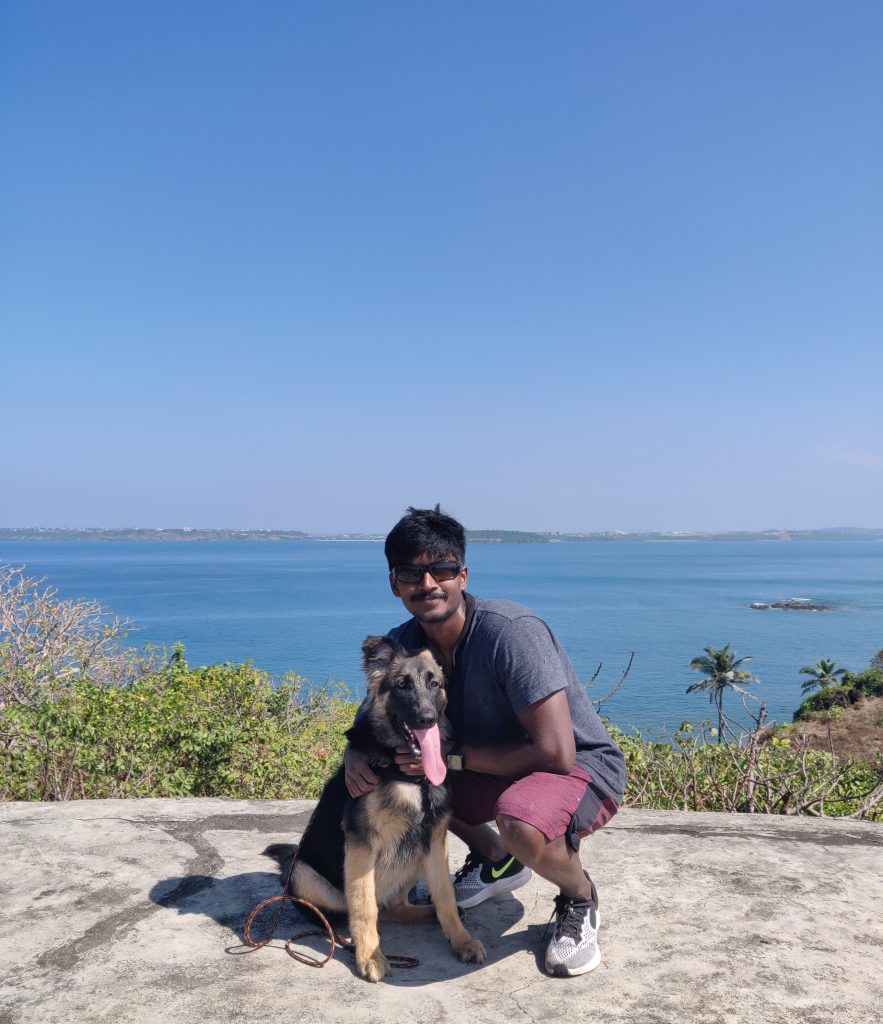
What’s your name and where are you from?
My name is Millen James Theophilus, and I was born in the beautiful beach state of Goa in India.
Where are you based and who are your supervisors?
I work at the School of Sport, Exercise and Health Sciences at Loughborough University in the United Kingdom. My supervisors are Dr Dale Esliger, Dr Andrew Kingsnorth, and Prof Lauren Sherar.
What’s your educational background?
I graduated with a BSc in Exercise and Sport Sciences in India in 2022. Subsequently, in the same year, I moved to the UK to pursue an MSc in Sport Biomechanics at Loughborough University. My studies involved extensive coding in MATLAB for signal processing and multi-body computer simulations.
What was the last professional or educational activity you carried out before joining LABDA?
My MSc degree was my last educational activity before working within the LABDA network.
What’s your PhD topic?
My PhD topic is ‘Evaluation, acceptance, and qualification of advanced analysis for assessing 24/7 movement behaviours: LABDA toolbox’. My thesis aims to profile sample-level or ‘raw’ sensor data to evaluate devices, data acquisition and signal processing decisions, and predictive models to accurately capture 24/7 movement behaviour modalities in laboratory and free-living environments using novel measurement and analytical methods. The research questions I aim to tackle are as follows:
Research Question 1 (Review paper):
How well do current models that use acceleration data to predict physical activity, sedentary behavior, or sleep perform when compared to a gold-standard method?
Research Question 2:
How accurate is the underlying acceleration signal for commonly used triaxial accelerometers and how much does it matter for predicting energy expenditure?
What would you like to achieve with your research work?
I would like to provide guidance based on my research work on three aspects relating to sensor-based 24-hour movement behaviour assessment—data acquisition, signal processing, and predictive modelling. My research will focus on advancing open-source methods and enhancing transparent research through the establishment of reporting guidelines in physical activity research.
What’s your role within LABDA?
My role within LABDA falls within Work Package 4, responsible for the interpretation and integration of the fellow’s findings into a sustainable LABDA toolbox. I am also one of the research coordinators as part of an internal role.
Can you tell us one personal thing about you that is weird/funny?
I have an irrational fear of frogs and toads.
Research Objective 3:
To develop a comprehensive dataset of diverse human activities with wrist acceleration, heart rate, and indirect calorimetry data to evaluate predictive model performance for predicting energy expenditure.
Research Question 4 (UK BioBank Study):
What is the effect of different signal processing decisions on physical activity, and what is their association with cardiometabolic and musculoskeletal health?
Methods used:
Scoping review, mechanical shaker, signal processing, Fast Fourier transformation, and indirect calorimetry.
Share this post: on Twitter on Facebook on LinkedIn


